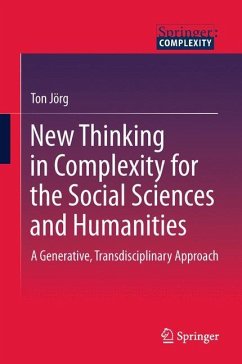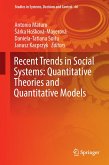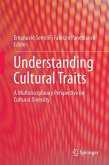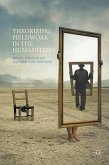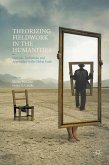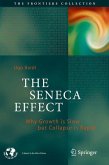The underlying idea and motive for the book is that the notion of complexity may humanize the social sciences, may conceive the complex human being as more human, and turn reality as assumed in our doing social science into a more complex, that is a richer reality for all.
The main focus of this book is on new thinking in complexity, with complexity to be taken as derived from the Latin word complexus: 'that which is interwoven.'
The trans-disciplinary approach advocated here will be trans-disciplinary in two ways: firstly, by going beyond the separate disciplines within the fields of both natural sciences and social sciences, and, secondly, by going beyond the separate cultures of the natural sciences and of the social sciences and humanities.
The main focus of this book is on new thinking in complexity, with complexity to be taken as derived from the Latin word complexus: 'that which is interwoven.'
The trans-disciplinary approach advocated here will be trans-disciplinary in two ways: firstly, by going beyond the separate disciplines within the fields of both natural sciences and social sciences, and, secondly, by going beyond the separate cultures of the natural sciences and of the social sciences and humanities.
"This book effectively captures some of the excitement and the sense of possibility that comes with the exploration of new paradigms with potentially major implications across the board, and it stimulates readers to develop their own thoughts about how the paradigm shift could materialize. The many wonderful illustrations of non-linear and fractal shapes and concepts ... are helpful in this context. They provide a welcome antidote to the generally high level of abstraction that comes, perhaps inevitably, with transdisciplinary scholarship." (Matthijs Koopmans, Nonlinear Dynamics, Psychology, and Life Sciences, Vol. 16 (4), 2012)
"For the theorist of transdisciplinarity New Thinking in Complexity for the Social Sciences and Humanities is a useful source. There is substantial evidence of creative pathways towards comprehending and applying transdisciplinary strategies in research. ... This approach could serve as a useful roadmap towards the implementation of transdisciplinarity." (Johann Tempelhoff, TD The Journal for Transdisciplinary Research in Southern Africa, Vol. 7 (1), July, 2011)
"For the theorist of transdisciplinarity New Thinking in Complexity for the Social Sciences and Humanities is a useful source. There is substantial evidence of creative pathways towards comprehending and applying transdisciplinary strategies in research. ... This approach could serve as a useful roadmap towards the implementation of transdisciplinarity." (Johann Tempelhoff, TD The Journal for Transdisciplinary Research in Southern Africa, Vol. 7 (1), July, 2011)

